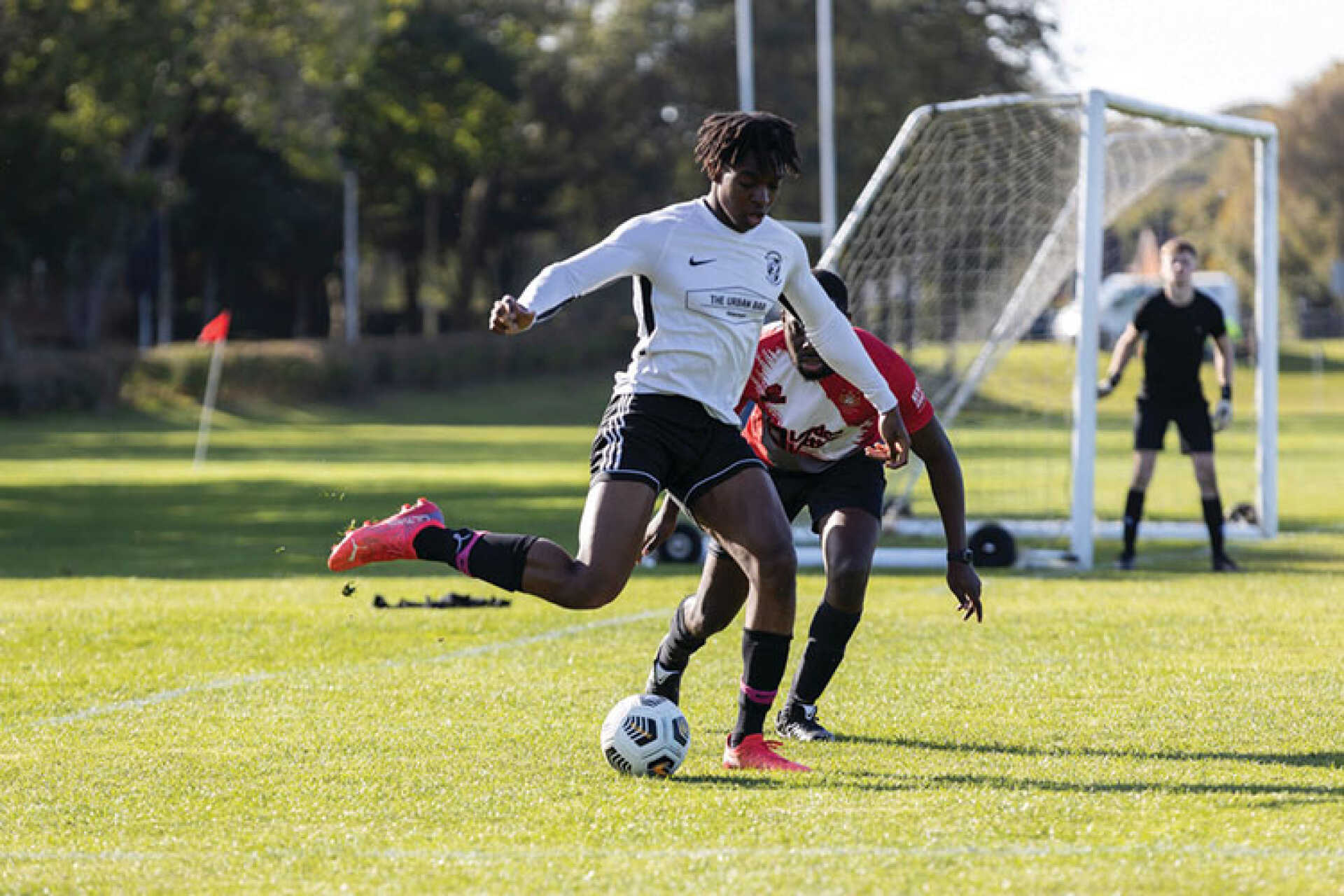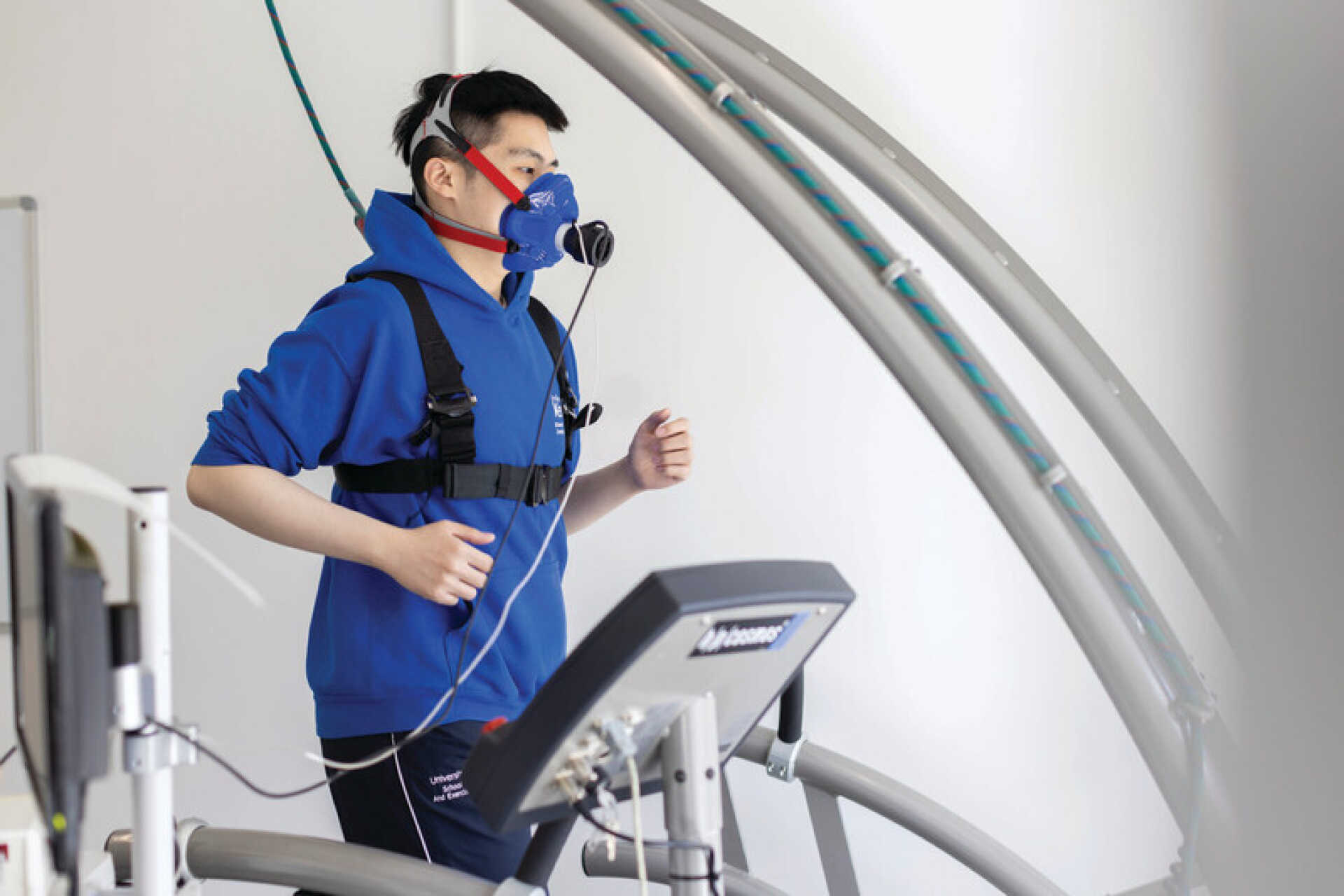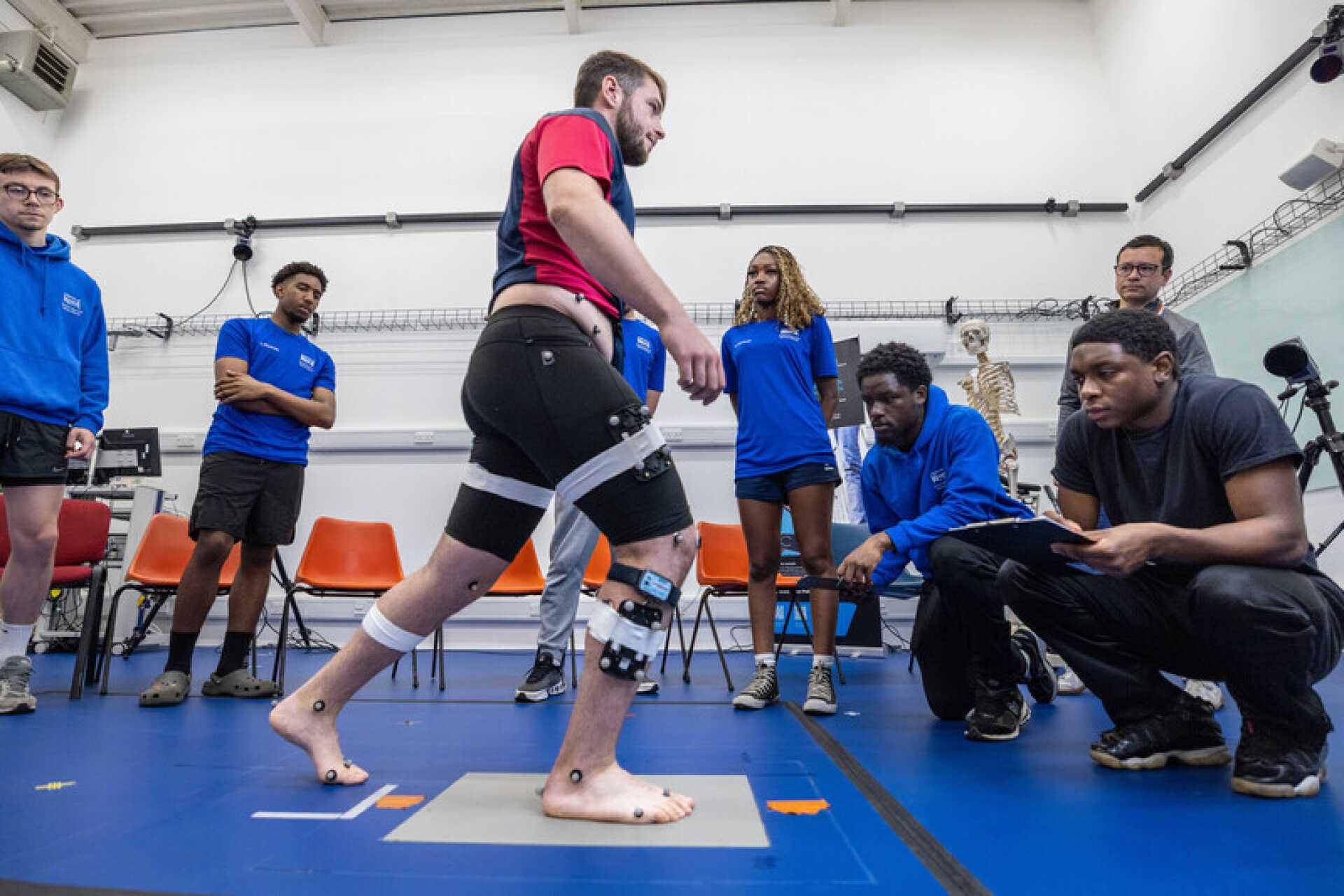What can I do with a degree in Sport?

As interest in health, performance, and well-being grows across society, graduates in Sport and Exercise Science and Sports Therapy and Rehabilitation play a critical role in understanding human movement, optimising physical performance, and promoting rehabilitation and public health.
Your theoretical scientific training, underpinned with practical skills, and research experience will be highly valued across sport, healthcare, education, and allied industries. Get ideas and inspiration here before booking a one-to-one appointment with a Careers Adviser.
Careers in Sport
The following are examples of the types of roles available to graduates, based on graduate outcomes and current industry trends:
Sport and Exercise Scientist Work in applied sport science, testing and improving athlete performance across physiology, biomechanics, and psychology.
Sports Coach Design and implement training programmes to enhance performance in elite and amateur athletes.
Sport Therapist / Rehabilitator Diagnose and treat musculoskeletal injuries in sport, fitness, or clinical settings and provide advice and rehabilitation knowledge to prevent injuries. Registered therapists work in private practice, sport clubs, or the NHS.
Health and Wellbeing Coach Promote healthy lifestyle changes through physical activity and behavioural interventions, often in public health or clinical settings.
PE Teacher Teach physical education in schools or deliver sport-related education at colleges/universities (often requiring further teaching qualifications).
Sport or Community Development Officer Create and manage sport and activity programmes that encourage participation at community and elite levels.
Exercise Physiologist Analyse client medical history and fitness and investigate responses and adaptation to muscular activity to improve athlete performance/fitness levels or to prevent and treat illness.
Performance Analyst Work within elite sport to monitor, record and analyse performance for an organisation or team.
Alternative career paths
Occupational Therapist (via further study) Apply therapy and activity-based treatments to help individuals recover from illness or injury and live independently.
Nutritional Therapist Advise clients or athletes on diet to support health and performance (further accreditation usually required).
Rehabilitation/Physiotherapy Assistant Assist physiotherapists and other clinicians in NHS or private rehab environments. May be referred to as a Physiotherapy Support Worker.
Health Promotion Specialist/Health Improvement Practioner Work on campaigns and community initiatives to promote physical activity and reduce lifestyle-related illness.
Clinical Trials Research Associate Design or support scientific studies in health, sport performance, or rehabilitation.
Sport and Exercise Psychologist Use psychological skills and expertise to support athletes to deal with the demands of sport and competition, helping them to enhance performance, motivation and reach full potential.
Where do University of Kent graduates work?
This is a selection of organisations that have employed University of Kent graduates in the past. There are many more possible employers in these and other industries.
- Professional sports clubs: Gillingham FC, Charlton Althletics FC, Crystal Palace FC, Millwall FC, Kent Cricket, Saracens Rugby
- National governing bodies: Sports administrators and development officers
- NHS and private clinics: NELFT NHS Trust, Medway NHS Trust, Other NHS Trusts, Bupa
- Education sector: Schools, colleges, and universities as educators and sports officers
- Health and fitness industry Pure Gym, Kent Sport
- Research organisations and universities In sport science, public health, and biomechanics
- Public health and local government Kent County Council, HCML, Healthshare Group

Find a job
The Careers and Employability Service provides information and advice on job searching to University of Kent students and recent graduates. This includes a vacancy database advertising a range of graduate jobs, placement year and vacation work/internships.
Tips to stand out
- Gain accreditation: Consider joining CASES, the Society of Sports Therapists, or REPs (Register of Exercise Professionals) to demonstrate professionalism.
- Gain real-world experience: Engage in internships, placements, or part time roles to build industry experience and client-facing skills.
- Engage in extracurricular activities: Participate in Sports clubs and societies or develop knowledge in areas such as First Aid, safeguarding, sports massage, or fitness instructor qualifications via short courses.
- Build a portfolio: Former clients, case studies, or your dissertation project can demonstrate your aptitude and knowledge to prospective clients.
- Network with alumni and mentors: Use LinkedIn and Kent’s Career Mentoring scheme to build connections with alumni and professionals and attend university events to gain insights into your target roles and industries. Attend sport science events, CASES student conferences, and use LinkedIn to connect with professionals.
- Develop commercial awareness: Regularly read sports-related news and journals, listen to podcasts to maintain commercial awareness.

Year in industry
A year in industry can have a big impact on your employability. By gaining real-world experience and learning key skills in the workplace, and pairing these with the knowledge you gain on your degree, you can become a highly employable candidate in the labour market. The year can be based in the UK or abroad, including your home country if you're an international student, and contribute to your final degree. At The University of Kent, many courses include an optional year in industry between your second and final year, where you undertake graduate-level work related to your studies.
Further study
Some graduates continue with postgraduate study to specialise, including:
- MSc Sport and Exercise Science
- MSc Physiotherapy (pre-registration)
- MSc Clinical Exercise Physiology
- PGCE (Physical Education)
- MSc Strength and Conditioning
- MSc Sports Therapy
- PhD research in biomechanics, physiology, or rehabilitation